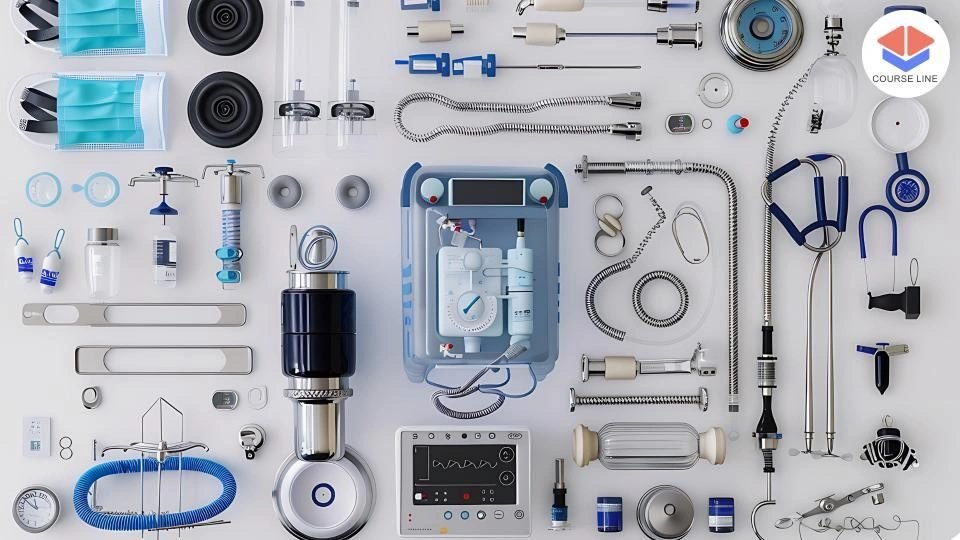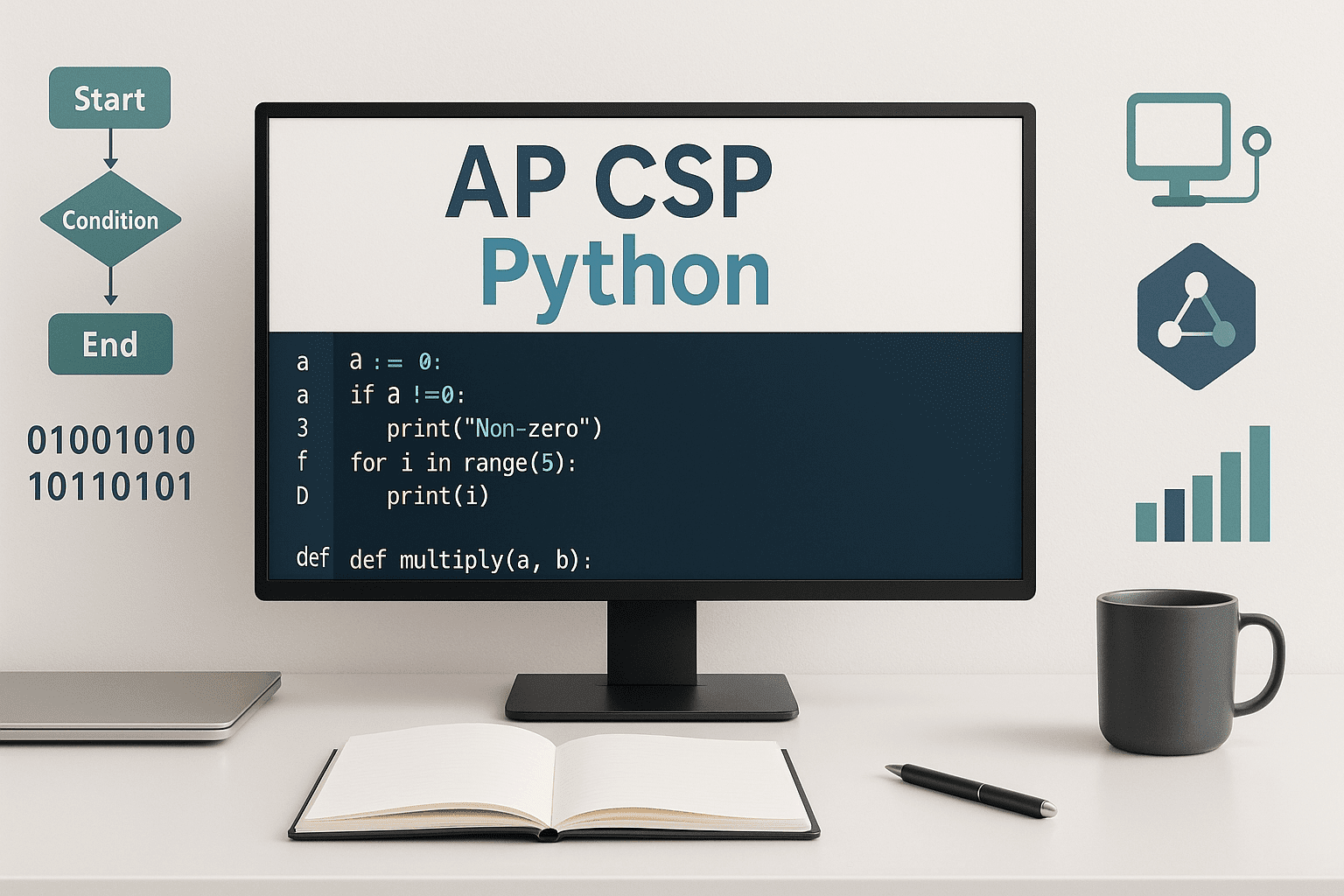Course Features
Price
Study Method
Online | Self-paced
Course Format
Reading Material - PDF, article
Duration
6 hours, 5 minutes
Qualification
No formal qualification
Certificate
At completion
Additional info
Coming soon
- Share
Overview
Instrumentation Engineering Essentials offers a thorough exploration of the key concepts and techniques in instrumentation engineering. Starting with an introduction to the field, this course covers the history, evolution, and importance of instrumentation engineering across various industries such as manufacturing, process control, and energy. Through a detailed breakdown of measurement principles, types of instruments, and the basics of control systems, students will gain a foundational understanding of how instrumentation is used to monitor and control processes in real-world applications.
The course delves into the principles and types of sensors and transducers, emphasizing their operation and applications. It also introduces signal conditioning techniques such as amplification, filtering, and noise reduction, which are essential for ensuring accurate measurements and reliable system performance. A key aspect of the course focuses on control systems, covering both open-loop and closed-loop systems, as well as the analysis of PID controllers and system stability.
Students will gain hands-on experience with data acquisition systems, learning how to interface hardware and capture real-time data. The course also explores communication protocols such as RS232, RS485, and industrial standards like Modbus, ensuring that students understand the vital role communication plays in modern instrumentation systems.
The course highlights the significance of instrumentation in industrial applications, including its use in process industries and manufacturing, backed by relevant case studies. It also addresses safety and regulatory concerns, teaching students about industry standards and ethical considerations. Finally, the course covers emerging trends in instrumentation, such as the integration with IoT and Industry 4.0, and explores the future prospects and career opportunities in this dynamic field.
Who is this course for?
Instrumentation Engineering Essentials offers a thorough exploration of the key concepts and techniques in instrumentation engineering. Starting with an introduction to the field, this course covers the history, evolution, and importance of instrumentation engineering across various industries such as manufacturing, process control, and energy. Through a detailed breakdown of measurement principles, types of instruments, and the basics of control systems, students will gain a foundational understanding of how instrumentation is used to monitor and control processes in real-world applications.
The course delves into the principles and types of sensors and transducers, emphasizing their operation and applications. It also introduces signal conditioning techniques such as amplification, filtering, and noise reduction, which are essential for ensuring accurate measurements and reliable system performance. A key aspect of the course focuses on control systems, covering both open-loop and closed-loop systems, as well as the analysis of PID controllers and system stability.
Students will gain hands-on experience with data acquisition systems, learning how to interface hardware and capture real-time data. The course also explores communication protocols such as RS232, RS485, and industrial standards like Modbus, ensuring that students understand the vital role communication plays in modern instrumentation systems.
The course highlights the significance of instrumentation in industrial applications, including its use in process industries and manufacturing, backed by relevant case studies. It also addresses safety and regulatory concerns, teaching students about industry standards and ethical considerations. Finally, the course covers emerging trends in instrumentation, such as the integration with IoT and Industry 4.0, and explores the future prospects and career opportunities in this dynamic field.
Requirements
Instrumentation Engineering Essentials offers a thorough exploration of the key concepts and techniques in instrumentation engineering. Starting with an introduction to the field, this course covers the history, evolution, and importance of instrumentation engineering across various industries such as manufacturing, process control, and energy. Through a detailed breakdown of measurement principles, types of instruments, and the basics of control systems, students will gain a foundational understanding of how instrumentation is used to monitor and control processes in real-world applications.
The course delves into the principles and types of sensors and transducers, emphasizing their operation and applications. It also introduces signal conditioning techniques such as amplification, filtering, and noise reduction, which are essential for ensuring accurate measurements and reliable system performance. A key aspect of the course focuses on control systems, covering both open-loop and closed-loop systems, as well as the analysis of PID controllers and system stability.
Students will gain hands-on experience with data acquisition systems, learning how to interface hardware and capture real-time data. The course also explores communication protocols such as RS232, RS485, and industrial standards like Modbus, ensuring that students understand the vital role communication plays in modern instrumentation systems.
The course highlights the significance of instrumentation in industrial applications, including its use in process industries and manufacturing, backed by relevant case studies. It also addresses safety and regulatory concerns, teaching students about industry standards and ethical considerations. Finally, the course covers emerging trends in instrumentation, such as the integration with IoT and Industry 4.0, and explores the future prospects and career opportunities in this dynamic field.
Career path
Instrumentation Engineering Essentials offers a thorough exploration of the key concepts and techniques in instrumentation engineering. Starting with an introduction to the field, this course covers the history, evolution, and importance of instrumentation engineering across various industries such as manufacturing, process control, and energy. Through a detailed breakdown of measurement principles, types of instruments, and the basics of control systems, students will gain a foundational understanding of how instrumentation is used to monitor and control processes in real-world applications.
The course delves into the principles and types of sensors and transducers, emphasizing their operation and applications. It also introduces signal conditioning techniques such as amplification, filtering, and noise reduction, which are essential for ensuring accurate measurements and reliable system performance. A key aspect of the course focuses on control systems, covering both open-loop and closed-loop systems, as well as the analysis of PID controllers and system stability.
Students will gain hands-on experience with data acquisition systems, learning how to interface hardware and capture real-time data. The course also explores communication protocols such as RS232, RS485, and industrial standards like Modbus, ensuring that students understand the vital role communication plays in modern instrumentation systems.
The course highlights the significance of instrumentation in industrial applications, including its use in process industries and manufacturing, backed by relevant case studies. It also addresses safety and regulatory concerns, teaching students about industry standards and ethical considerations. Finally, the course covers emerging trends in instrumentation, such as the integration with IoT and Industry 4.0, and explores the future prospects and career opportunities in this dynamic field.
-
- Overview of Instrumentation Engineering 00:10:00
- Importance in various industries 00:10:00
- Historical development and milestones 00:10:00
-
- Principles of measurement 00:10:00
- Types of measurement instruments 00:10:00
- Introduction to control systems 00:10:00
- Types of sensors and transducers 00:10:00
- Principles of operation 00:10:00
- Applications in real-world scenarios 00:10:00
- Open-loop vs. closed-loop systems 00:10:00
- PID controllers 00:10:00
- Stability and response analysis 00:10:00
- Overview of communication protocols 00:10:00
- RS232, RS485, and other serial communication standards 00:10:00
- Introduction to industrial communication protocols (e.g., Modbus) 00:10:00
- Safety considerations in instrumentation 00:10:00
- Compliance with industry standards and regulations 00:10:00
- Ethical considerations in instrumentation engineering 00:10:00
- Exam of Instrumentation Engineering Essentials 00:50:00

No Reviews found for this course.
Is this certificate recognized?
Yes, our premium certificate and transcript are widely recognized and accepted by embassies worldwide, particularly by the UK embassy. This adds credibility to your qualification and enhances its value for professional and academic purposes.
I am a beginner. Is this course suitable for me?
Yes, this course is designed for learners of all levels, including beginners. The content is structured to provide step-by-step guidance, ensuring that even those with no prior experience can follow along and gain valuable knowledge.
I am a professional. Is this course suitable for me?
Yes, professionals will also benefit from this course. It covers advanced concepts, practical applications, and industry insights that can help enhance existing skills and knowledge. Whether you are looking to refine your expertise or expand your qualifications, this course provides valuable learning.
Does this course have an expiry date?
No, you have lifetime access to the course. Once enrolled, you can revisit the materials at any time as long as the course remains available. Additionally, we regularly update our content to ensure it stays relevant and up to date.
How do I claim my free certificate?
I trust you’re in good health. Your free certificate can be located in the Achievement section. The option to purchase a CPD certificate is available but entirely optional, and you may choose to skip it. Please be aware that it’s crucial to click the “Complete” button to ensure the certificate is generated, as this process is entirely automated.
Does this course have assessments and assignments?
Yes, the course includes both assessments and assignments. Your final marks will be determined by a combination of 20% from assignments and 80% from assessments. These evaluations are designed to test your understanding and ensure you have grasped the key concepts effectively.
Is this course accredited?
We are a recognized course provider with CPD, UKRLP, and AOHT membership. The logos of these accreditation bodies will be featured on your premium certificate and transcript, ensuring credibility and professional recognition.
Will I receive a certificate upon completion?
Yes, you will receive a free digital certificate automatically once you complete the course. If you would like a premium CPD-accredited certificate, either in digital or physical format, you can upgrade for a small fee.
Course Features
Price
Study Method
Online | Self-paced
Course Format
Reading Material - PDF, article
Duration
6 hours, 5 minutes
Qualification
No formal qualification
Certificate
At completion
Additional info
Coming soon
- Share
AP Computer Science Principles & Python Programming Masterclass
Kazi Shofi Uddin Bablu237£490.00Original price was: £490.00.£14.99Current price is: £14.99.Botany Level 8 Advanced Diploma
Course Line237£490.00Original price was: £490.00.£14.99Current price is: £14.99.Story-Selling Mastery: Build Profitable Email & Content Campaigns That Convert
Kazi Shofi Uddin Bablu237£490.00Original price was: £490.00.£14.99Current price is: £14.99.





